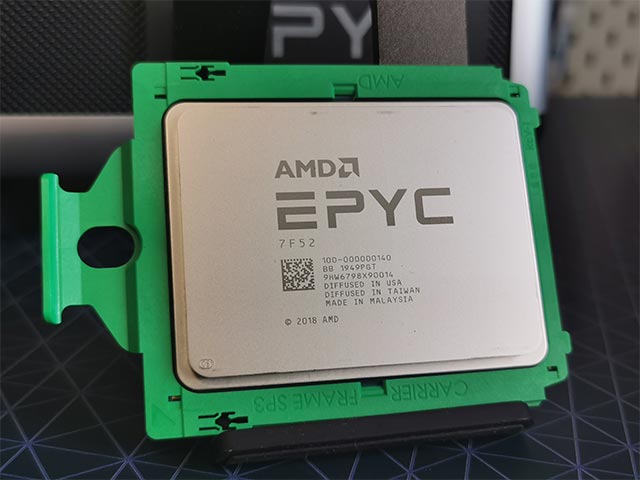AMD introduces 3 new server CPU models, promising outstanding performance on each core
AMD has officially launched the second generation EPYC server CPU models, including 7F32, 7F52 and 7F72, with 8, 16 and 24 cores respectively, promising significantly improved processing power compared to predecessors.
According to AMD's statement, the new processors will give maximum performance per core, stronger than any x86 server CPU on the market today, even surpassing AMD's own EPYC 7262 - the CPU model. The server has been ranked the highest in terms of processing power on each core according to SPEC rating. In addition, these three new CPU models promise 17% higher performance on SQL Server workloads, and 47% higher performance in VMmark than today's competitors.
'AMD EPYC will continue to redefine the concept of processors for modern data centers, and with the introduction of three powerful new processors, we offer our customers choices. more awesome and maximum performance improved. Working with trusted AMD partners, we work together to push the limits of performance and core value in hyperlinked infrastructure, commercial HPC and workloads related to database, '' said Dan McNamara, senior vice president and general manager of server business at AMD.
 AMD EPYC 7F52
AMD EPYC 7F52 Overall, the new 2nd generation AMD EPYC 7Fx2 processors offer the best per-core performance, as well as the highest overall performance in the EPYC family. The performance of these new processors comes from a balanced architecture that combines high-performance 'Zen 2' cores, innovations in system designs such as PCIe® 4 and DDR4-3200 memory5 and AMD Infinity architecture, provides optimized system performance, allowing for better real-world application performance.
Here are the specifications of the 3 new AMD EPYC processors:
Processor Core / Threaded TDP Base Frequency / Max Boost Frequency L3 Cache (per core) Price7F328/16180W3.7GHz / ~ 3.9GHz128MB (16MB)2,100 USD7F5216/32240W3.5GHz / ~ 3.9GHz256MB (16MB)3,100 USD7F72 24/48240W3.2GHz / ~ 3.7GHz192MB (8MB)2,450 USD